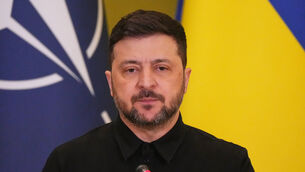Kashmir battles continue as rivals consider peace plan
Islamic gunmen stormed a police base in Kashmir, killing two officers, and cross-border shelling killed at least 28 other people today amid international efforts to avert a full-fledged war between nuclear powers India and Pakistan.
The new violence followed a US State Department warning that ‘‘irresponsible elements’’ in India and Pakistan could spark a conflict against the wishes of both governments.














